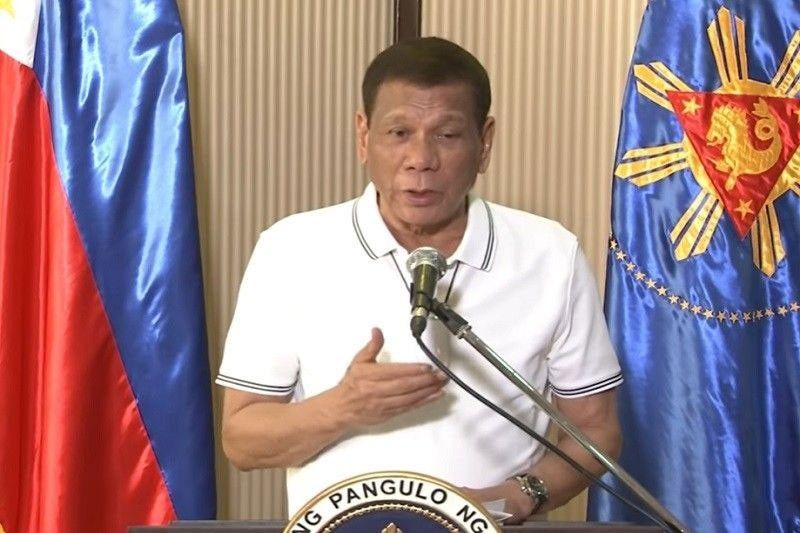No more queues: Duterte wants paperless government transactions

MANILA, Philippines — As thousands of Filipinos turn to online banking and cashless transactions under a so-called new normal, President Duterte last night pitched the need to build trust in the digital divide.
“We need to build trust and confidence in online transactions. Stronger protection for online consumers and enabling measures for online businesses are needed through the enactment of an Internet Transactions Act (ITA). This is very good,” Duterte said in his fifth State of the Nation Address at the Batasan complex in Quezon City.
He said he has directed the Department of Trade and Industry (DTI) and concerned agencies to push for the immediate approval of the ITA.
“I thus direct the DTI and other relevant [government] agencies to work closely with Congress in ensuring that the provisions of the proposed bill are responsive to the needs of the consumers while promoting the growth of e-commerce in the country,” he said.
He also underscored the need to prime up the economy and support micro, small and medium enterprises.
“The government will intensify its efforts to help businesses, especially our micro, small and medium enterprises or MSMEs, by providing responsive government assistance and services, capitalization and business operations support as we adapt to the next normal,” he said.
Since many businesses were affected by the crisis, Duterte said the DTI, through the Small Business Corporation, set up the P1-billion COVID-19 Assistance to Restart Enterprises or CARES Program to provide zero-interest loans for MSMEs affected by the pandemic.
“We pump-primed the recovery and rehabilitation of MSMEs,” he added.
As of July 10, Duterte said over 2,600 loan applications worth P182.5 million have been approved.
“We are optimistic that this initiative will help our MSMEs stabilize and recover from their losses,” the President said.
As if on cue, Sen. Bong Go has filed a measure that seeks to institutionalize the transition of the government to e-governance in the digital age amid the challenges caused by the COVID-19 pandemic.
In Senate Bill 1738 or the E-Governance Act of 2020, the government is mandated to establish an integrated, interconnected and interoperable information and resource-sharing and communications network spanning the entirety of the national and local governments, an internal records management information system, information database and digital portals for the delivery of public services.
“The measure likewise pushes for the digitization of paper-based and other traditional modes of workflows for a more efficient and transparent public service,” Go said, pointing out that “the public will feel that the government is actually and truly at their fingertips.”
Senate President Vicente Sotto III expressed during the opening of the second regular session of the 18th Congress the need for the digitalization of government processes in the country amid the pandemic.
“For as long as the pandemic remains uncontrolled, there will be a need to upgrade and improve the digital highway for support of various communication and support of transactional needs,” Sotto said.
In the explanatory note of the bill, Go said that in an age “where almost everything can be done online and through other digital platforms, the government must harness the power of information and communications technology to better serve its purpose and bring the government closer to the people.”
He noted that the COVID-19 pandemic “highlighted gaps, both foreseen and unforeseen, in the delivery of government services in the country.”
Go admitted that major government social services and programs are being forced to shut down, limiting the public’s accessibility to public services at a time when these are needed most.
“The new normal warrants the government to consider and adopt, in a very radical but pragmatic way, the importance of digital transformation and use of electronic services and platforms to enable the government to do better,” he explained.
Under his proposed measure, the heads of government agencies are mandated to comply with the requirements of the bill, including related standards for all ICT infrastructure, systems, equipment, designs and other technologies promulgated by the Department of Information and Communications Technology.
The DICT will also be mandated to harmonize and coordinate all national ICT plans and initiatives to ensure knowledge, information and resource-sharing, database-building and agency networking linkages among agencies, consistent with e-government objectives.
The bill also provides for the establishment of the Integrated Government Network (IGN), which will act as the primary means for the sharing and communication of resources, information and data on digital and electronic platforms across all of government.
- Latest
- Trending




























